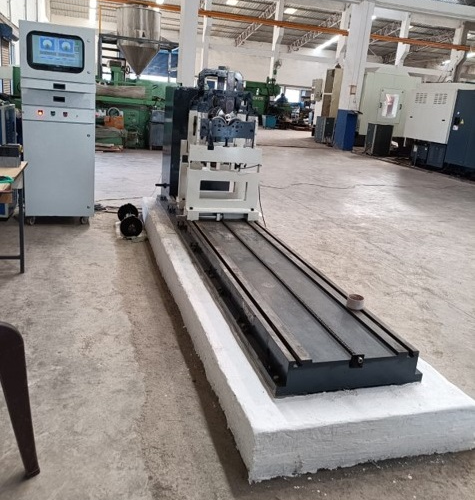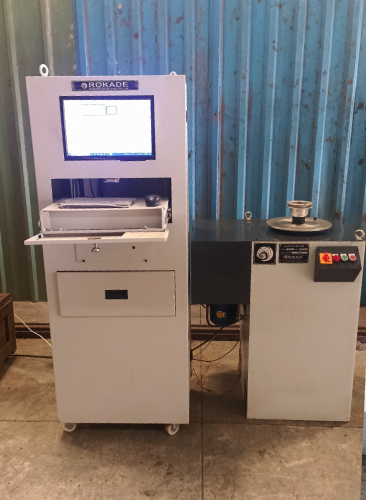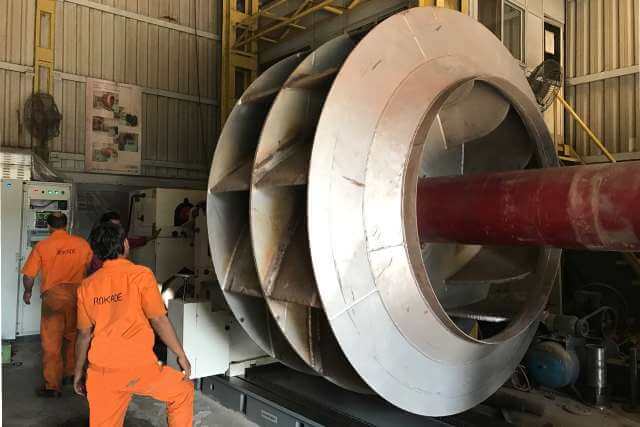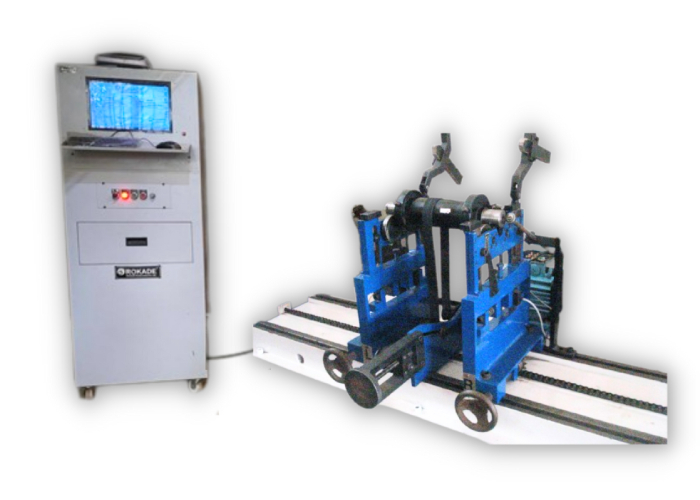Horizontal Balancing Machine Vs Vertical Balancing Machines
Horizontal balancing machines can be used for rotor balancing with their own bearing journals and for rotors which cannot be loaded into vertical balancing machines because of their size or length.
The force measuring principle is a prerequisite for simple and time-saving handling of our machines for rotor balancing.
Horizontal Balancing Machine

Horizontal machines are used for balancing components mounted horizontally.
Used for components like electrical motor, turbines, turbochargers, rolls and many others.
Available from few hundred grams to many tons capacity.
G2.5, G1 balancing grades available. Better grades available on request.
Application examples for a horizontal balancing machine
Electric armatures
Railway wheel sets
Printing rollers
Crankshafts
Mulchers
Paper rollers
Pump rotors
Hammer rollers
Spindles
Vertical Balancing Machine

A vertical balancing machine has the rotor mounted on the balancing machine vertically. Vertical balancing machines are suited for rotors where the design of the component calls for balancing on a vertical balancing machine. The vertical balancing machine is suited for production applications since the tool can remain fixed on the machine and the component can be swapped and measured quickly.
Vertical machines are used for balancing components mounted vertically.
Used for components like discs, grinding wheels, flywheels, pulleys and many others.
Wide capacity range.
Features
Permanently calibrated hard bearing balancing machine. The calibration on a Vertical balancing machine is permanently calibrated, enabling easy swapping of components.
Indexing / Tooling error compensation standard for compensating tool error and doing adapter remount error compensation procedure.
Remote angle electronic protractor gives a visual and electronic indication of unbalance location without heavy error inducing attachments such as angle discs.
Integrated correction station optionally available with interlocks for correction of the unbalance on the balancing machine.
Automatic start brake stop cycle program
Automatic positioning function at unbalance location optionally available
Automatic logging of unbalance measurements. Sequence of measurements can be used for process control to improve first run balancing results.
Placeweights program for distributing correction at multiple locations such as multiple drills.
G2.5, G1 grade machines available as standard. Better accuracies available on request.





